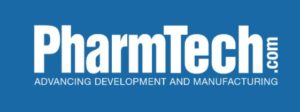Published Articles
Robust supplier quality agreements and good communication scheme can help avoid and alleviate regulatory concerns.
Managing the relationships between clients and contract manufacturing organizations (CMOs) can be difficult as the pharmaceutical landscape and its related supply chains become more global and complex. One of the best tools to achieving a good working relationship between a client and their CMO is the use of well-drafted, clear and concise quality agreements. To accomplish this, it is important to understand the different types of clients as well as the types of CMO models existing in today’s environment.
FDA Quality Guidance
In May 2013, FDA published draft guidance on quality agreements, which was finalized in November 2016 (1). Although written quality agreements are not explicitly required under existing CGMP regulations, they are required by the European regulations. Chapter 7, Outsourced Facilities, in EudraLex Volume 4 states:
“There must be a written Contract between the Contract Giver and the Contract Acceptor which clearly establishes the duties of each party”.
The FDA final guidance is titled Contract Manufacturing Arrangements for Drugs: Quality Agreements and, like all final guidances, represents FDA’s current thinking on the topic. The need for quality agreements is underscored by 21 Code of Federal Regulations (CFR) 200.10, Contract Facilities that states,
“Section 704(a) of the Federal Food, Drug, and Cosmetic Act specifically authorizes inspection of consulting laboratories as well as any factory, warehouse, or establishment in which prescription drugs are manufactured, processed, packed, or held”.
Lab Testing
This section of the regulations goes on to state,
“The Food and Drug Administration is aware that many manufacturers of pharmaceutical products utilize extramural independent contract facilities, such as testing laboratories, contract packers or labelers, and custom grinders, and regards extramural facilities as an extension of the manufacturer’s own facility.”
And finally, 21 CFR 211.22, Responsibilities of the Quality Control Unit, states:
“The quality control unit shall be responsible for approving or rejecting drug products manufactured, processed, packed, or held under contract by another company”.
The emergence of CMOs and virtual companies has been at the forefront of some of the challenges the industry is experiencing. With the finalization of the FDA guidance, it is an opportune time to revisit the concepts and ideas regarding quality agreements.
Quality Agreements
Quality agreements should not be limited to what is meant by traditional manufacturing but should be expanded to include the support activities necessary to producing a final product. It is important to put into context what is meant by “manufacturing”. For the purposes of this article, “manufacturing” will be considered anything to do with the manufacturing, testing, processing, packaging, or holding of the product including the procurement of the active ingredient, excipients, and packaging materials, including labeling, used to assemble the product.
Outsourced Staff
Another important issue to understand is the different client and CMO business models existing in the industry today. The various outsourcing models range from staff augmentation for a single activity to the full range of activities to produce the product. Partners in the contract-manufacturing niche also include the full spectrum from small to large and from early development to late-stage generic drug companies.
Quality Control
The complexity of the business models emphasizes the need of the consulting industry to employ a meaningful quality agreement. Quality control would focus on defining who is responsible for what in the relationship and what the communication scheme will be between the organization(s).
Vendor Contracts and Vendor Agreements
Often the consistent issues within vendor contracts and vendor agreements often include the actual logistics of the agreement itself. While there is obviously no one model for format and content, each party usually would like their own format for consistency. The real issue, however, is to agree on the scope and level of detail.
Manufacturing Operations
Looking at the situation from both sides might help in understanding the complexity of the issue. A CMO will have multiple clients. Each client will have different information they want highlighted in their quality agreements and will want to use their own quality agreement template.
Quality Management System (QMS)
Clients should look for a robust quality system and an open and communicative culture when choosing a contract organization to perform work for them. CMOs should look for clients who understand the regulations and can evaluate the CMO’s systems against those regulations rather than demanding the CMO conform to their way of doing things. Keeping track of numerous commitments can cause regulatory risk for the CMO, particularly if one client wants to have a different approach to an issue than another client.
Vendor Contract Agreement
Let’s look at a vendor contract agreement example where robust quality agreements and a good communication scheme would have helped avoid and alleviate a regulatory concern. Keep in mind that the contracted parties involved in this scenario are unaware of the multiple contracts negotiated by the client, none of the contracts specify which party is responsible for investigations, and there is no mention in the quality agreement about how the parties will communicate in the event of an issue.
Clinical Manufacturing
The CMO was manufacturing clinical-trial materials for a client. The CMO was scheduled to perform the sixth manufacturing run of the clinical material when they noticed a different physical appearance to the API during incoming inspection.
The Certificate of Analysis accompanying the API indicated the material met the necessary specifications. The CMO was only capable of performing an incoming identity test because the client had contracted for the API release testing to be performed by a contract test laboratory (CTO).
Supplier Quality Agreement
The CMO contacted the client and expressed their concerns with the appearance of the incoming API. The client said that they were not concerned with the physical appearance of the API and told the CMO to manufacture the clinical-trial material. Once the manufacturing run was completed, the CMO, per the supplier quality agreement, sent the final product to a different CTO. The product failed final product release testing, and the CTO opened an out-of-specification investigation.
Scientific Services
The CTO found no error attributable to the laboratory. They contacted the client and discussed the scientific services team thought there was a problem with the manufacturing run. The client contacted the CMO and told them to investigate the incident at their facility only.
During the investigation, the CMO documented that they felt the failure of the product to pass the final product testing was due to the unusual appearance of the API and requested permission from the client to talk with the API manufacturer. The client denied the request; the clinical trial batch was placed on hold by the CMO; and the investigation was never closed out.
Quality Assurance Agreement
During a regulatory inspection, the inspector wanted to know what the outcome of the investigation was. The CMO had to tell the inspector that they could not complete the overdue investigation included in the quality assurance agreement because they were unable to talk to the API manufacturer. The client had told them that they investigated the API manufacture and could find nothing wrong with the API.
The CMO said the investigation was still open because the most probable root cause identified was the API, but it could not be verified. The result was that the CMO, the client, and the API manufacture were all issued FDA 483s and the product approval was delayed until the issue could be resolved.
Communication Plan
How could a more robust quality agreement and a communication plan have helped resolve the situation? There are a couple of recommendations to be made. The first is when there are multiple quality agreements involved, the client should make sure each of the parties are aware of each other through their quality agreement.
The client should also define that they will facilitate any communications between the various parties involved in the manufacturing including the testing laboratories, packagers, etc. In addition, the quality agreements should state who is responsible for the various activities including the facilitation and resolution of investigations.
Technical Quality Agreement
There is no right or wrong in crafting quality agreements. A good technical quality agreement will take into consideration the needs of the CMO, the client, adherence to compliance, and regulatory commitments of both parties. If both parties keep these principles in mind, they will have a great working relationship despite the quality agreement.
Article Details
Pharmaceutical Technology
Vol. 41, No. 3
Pages: 58-61
To begin the Regulatory Compliance Associates scoping process today, please enter your information in the blue form below and click the submit button at the bottom of the webpage. You may also email us at [email protected].
Connect with RCA Today
Contact us to learn more about our regulatory compliance experts and how they can help




















